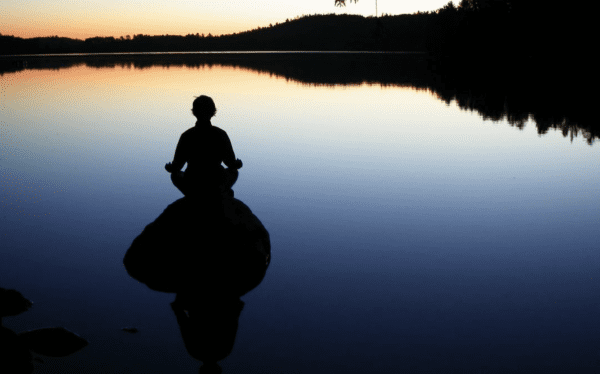Public Health Department Teaches Class on the Science Behind Happiness

In the last 20 years, happiness has emerged as a study with a scientific basis. UNC Charlotte faculty and students are finding how it can teach us all to lead better and more rewarding lives.
At the height of the pandemic, two public health professors—Deborah Beete and Alicia Dahl—started taking walks at Freedom Park for their mental health.
They were not only trying to cope with fallout from the pandemic but with racial justice issues that were surfacing that were really difficult.
“When we started to talk about the need to find peace and happiness in our own lives and to prioritize that for health benefits, we realized this is not going to suddenly change over time. At the end of the pandemic, nothing ensures we will be happier unless we make some intentional effort.”
Dahl and Beete made a practice of routinely checking in with one another. It transformed into a beautiful resilience tactic, and they envisioned teaching UNC Charlotte students how to navigate through these trying mental health challenges.
For Alyssa Cain, a pre-nursing sophomore in the class, the switch to remote learning made her feel like she missed out on a whole year. For computer science sophomore Miguel Jover, the pandemic caused a disruption in his sense of time and emotional well-being.
One consequence of the pandemic and other global challenges, said Dahl, is that we might feel we have less control over our daily lives.
But last fall Dahl and Beete taught a class called The Pursuit of Happiness for Health that explores the factors influencing happiness and demonstrates how happiness is strongly linked to conscious, intentional choices.

The class emphasizes mindfulness, personal exploration and a willingness to ask difficult questions.
“What we’re trying to do with the student is pose deep questions that are challenging that we don’t really think about often,” said Dahl.
The students wrote a personal philosophy of happiness and then created two 14-day photo journals documenting how it evolved over the course of the semester. They shared their personal challenges and contemplated solutions, making it feel like a cross between a research think tank and a group therapy session.
“Our methodology is designed to cultivate happiness in a safe environment,” said Beete. “But it’s also helping students discover how they would ultimately like to live. There is a certain intentionality that results from exploring all this.”
Happiness as a Discipline
The decision to teach a course on the science of happiness highlights a sea change taking place in modern psychology. Once considered the privileged domain of philosophers or self-help gurus, happiness has emerged in the past two decades as a study supported by vast networks of experimental data, which enables scientists to demystify the link between cause and effect.

The research consists of double-blind experiments with thousands of participants, studies of identical and fraternal twins, and individuals observed over decades. It has studied the meaning, expression, and pursuit of happiness and its connection to health across cultures, subcultures, ethnicities, religions, socioeconomic strata and age groups and has carried out happiness-increasing interventions across the world.
Positive psychology is based on the evidence that empowering people to develop a positive state of mind can allow them to live happier, healthier and more rewarding lives.
“It’s something that’s always existed, but we’re now learning how to harness it for our mind and body,” said Dahl.
It is also a public health issue, in the same way issues like access to clean water or housing are traditionally thought of.
“As a discipline,” said Beete, “public health is often bouncing up against the prevailing attitudes of the day. But we know that people who are happy tend to be healthier. So if we’re thinking about this from a population level, our hope is that there will be ripples as a result of interacting with students in this course. That’s how public health operates everywhere.”
The dimensions of wellness include social, emotional, political, cultural, environmental and spiritual factors, and it’s through these multiple perspectives that the class explores what happiness means.
They’re bringing in outside experts to enlarge on multiple perspectives, including a psychologist and a reverend.
“If we want to have a healthy population, we need to be also considering how important happiness is for larger populations and how they are affected differentially across ethnic, cultural and socioeconomic borders,” said Dahl.
Their vision extends beyond class. Dahl and Beete recognize that the content of their course can benefit family, community, workplace and nation, and they’re hoping to equip students with the skills to step into careers where they’re allowing that held value in happiness to stay a priority.
“This is a critical life skill,” said Dahl, “and I would love for the long-term vision of this course to be farther-reaching. I think that there’s a place for this on every college campus.”
Beete agreed. “In my ideal world,” she said, “this would be a permanent course in our department. It is, by nature, interdisciplinary and interprofessional. Because of that, we’re happy to plant the seed.”
As with all great changes, they must start small.

Alyssa Cain said, “So far the class has taught me to slow down, which is hard to do these days, and find little moments every day to make me happy. In doing so, I’ve taken away a different perspective, one in which I’m more appreciative.”
Miguel Jover believes choosing this class was one of the best decisions he has made in a long time. “It gives me a place to start.”